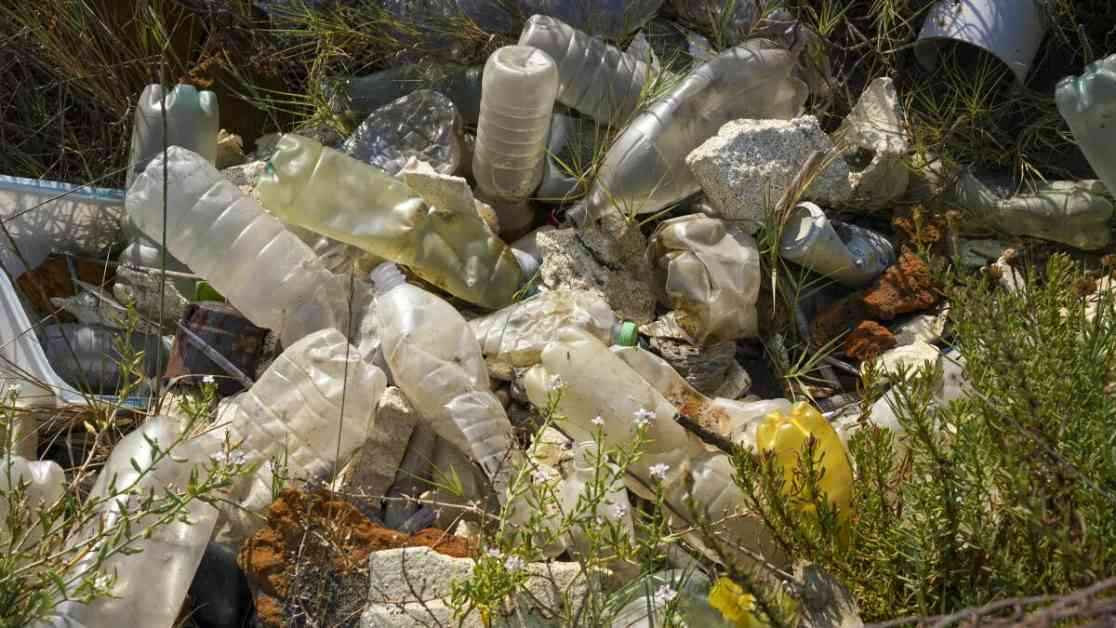The ban on polystyrene packaging in California has been a hot topic since the beginning of the year. Governor Gavin Newsom signed a landmark waste law in 2022 that made it illegal to sell, distribute, or import polystyrene packaging in the state starting on January 1st. This move has been widely praised by lawmakers and environmentalists as a significant step in the fight against single-use plastics and pollution. However, the lack of public statements or acknowledgments from the governor’s office or CalRecycle, the agency responsible for enforcing the law, has raised concerns among environmental groups and lawmakers.
Behind the Scenes Battle
There is growing speculation that plastic manufacturers, producers, and distributors are working behind the scenes to undermine the plastics law, known as SB 54. The regulations for this law have been the subject of intense negotiations between plastic and packaging companies, lawmakers, and environmentalists for the past two and a half years. The final regulations are expected to be completed by March 8th, and any delays could potentially derail the entire process.
State Senator Catherine Blakespear, along with 13 other lawmakers, has urged Governor Newsom to stay on track with SB 54 and meet the established timeline. Blakespear emphasized the importance of reducing plastic waste and microplastics in the environment and expressed her concern about potential delays in implementing the law.
Daniel Villaseñor, a spokesman for the governor’s office, stated that Newsom takes stakeholder input seriously and is considering all options to successfully implement the program. The governor has expressed a commitment to achieving the goals of SB 54 to reduce plastic pollution and hold polluters accountable.
Challenges and Controversies
While the law was signed in 2022, the regulations that govern its implementation have been a point of contention. The law aims to phase out single-use plastics by imposing recycling and composting requirements on consumer product packaging. Failure to meet recycling targets could result in a ban on certain products like polystyrene.
The industry has raised concerns about the costs associated with compliance, the complexity of the regulations, and potential conflicts with federal statutes. Some companies have advocated for alternative recycling methods like chemical recycling, which are not currently allowed under the law. The debate over these issues has intensified in recent months, with lobbying efforts and late-stage negotiations shaping the future of SB 54.
Environmental groups and lawmakers have expressed frustration over the industry’s resistance to the regulations, citing previous collaborations and compromises made during the drafting process. The sudden pushback from industry stakeholders has put the future of SB 54 in jeopardy, raising questions about the law’s effectiveness and the willingness of the industry to comply.
The uncertainty surrounding SB 54 has already had implications for businesses in California. Some polystyrene manufacturers and distributors have begun phasing out the plastic in anticipation of the law taking effect. Companies like Sysco have removed polystyrene items from their inventory, while others, like World Centric, are waiting for clarity on the law before making further decisions about expansion and hiring.
As the debate over SB 54 continues to unfold, the future of plastic regulation in California remains uncertain. Stakeholders on all sides are grappling with the complexities of implementing a law that aims to reduce plastic waste and pollution while balancing the concerns of industry, environmental groups, and lawmakers. The coming months will be crucial in determining the fate of SB 54 and its impact on the state’s environmental policies.


